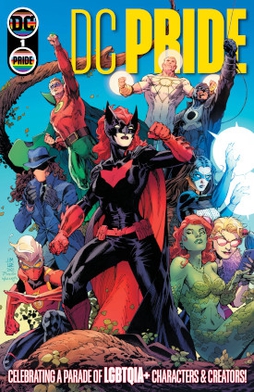
Comic books have emerged as a powerful medium for promoting diversity and inclusion, challenging stereotypes, and reshaping narratives across the globe. In South Africa, the influence of comic books on society, particularly within the queer community, is a testament to the transformative power of storytelling. Comic Con Africa, a celebration of personal expression, has played a pivotal role in fostering a sense of community acceptance, leaving a lasting social impact. Through the lens of comic books, the queer community finds representation that transcends the conventional, offering a beacon of hope and empowerment. Here are seven ways in which queer representation in pop culture, especially through comics, is shaping a more inclusive South Africa:
1. Breaking Stereotypes within African Narratives
Queer characters in African comics are breaking free from traditional stereotypes, challenging societal norms, and redefining the essence of heroism. An exemplary character is “Kwanele,” a South African superhero identifying as non-binary. Kwanele shatters gender norms while fighting crime, showcasing the power of individuality and self-expression.
2. Role Models for the Youth
Today’s young readers have access to a diverse array of queer role models within the comic book realm. Characters like “Thandiwe” in “Cape Town Chronicles” exemplify the strength and authenticity of embracing one’s true self, emphasizing that this authenticity is a superpower in itself. These characters inspire the youth to embrace their uniqueness and stand tall.
3. Debunking Relationships
Comic books have evolved to portray a spectrum of relationships, transcending the confines of heteronormativity. South African comics like “Durban Delights” showcase same-sex relationships, portraying love without boundaries. These narratives help dispel prejudices and contribute to a more understanding and accepting society.
4. Diverse Storytelling
Queer representation in comics has paved the way for diverse storytelling, shedding light on different aspects of the LGBTQ+ experience. “Soweto Serenaders,” for instance, delves into the lives of a queer choir in South Africa, narrating their challenges and celebrating their resilience. These stories enrich our understanding of diverse identities and experiences.
5. Educational Opportunities
Comics have become valuable educational tools, helping to educate people, especially the youth, about LGBTQ+ issues. Series like “Rainbow Warriors” target teenagers, offering insights into acceptance, tolerance, and identity. By engaging with these comics, individuals gain a deeper understanding of the LGBTQ+ community and the importance of inclusion.
6. Fighting Discrimination
In the battle against discrimination, comics serve as a powerful weapon. “Joburg Justice League” features a diverse team of heroes standing against prejudice and working towards a more inclusive society. Through these narratives, comics advocate for a world where diversity is celebrated and discrimination is eradicated.
7. Building Bridges
Queer representation in comics fosters understanding, empathy, and unity. “Mzansi Mysteries” explores the lives of queer individuals across different South African communities, promoting unity and acceptance. By narrating their experiences, these comics bridge gaps, promoting dialogue, and contributing to a more cohesive society.
As Martin Headger, a Brand Strategist and pop culture enthusiast, aptly states, “Queer representation in local comics is more than just entertaining and empowering. It’s changing perceptions and giving a voice to those who have long been marginalized. With each new issue, these comics are rewriting the narrative and ensuring that the diverse stories of the LGBTQ+ community are told and celebrated.”
The transformative power of queer representation in comics extends beyond entertainment—it is a catalyst for social change, acceptance, and the celebration of diversity. The narratives found within these pages inspire a more inclusive future for South Africa, embracing a society where everyone’s story is heard and celebrated.